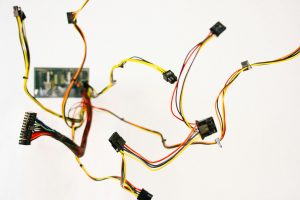Intelligent Devices Redefining Boundaries of Human Experience
In today’s technology-driven world, it seems like intelligent devices are becoming more and more integrated into our daily lives. From smartphones and voice assistants to smart homes and self-driving cars, these devices are constantly evolving and pushing the boundaries of what we can achieve. But what exactly do we mean by intelligent devices? And how are they redefining the boundaries of human experience? In this article, we will explore the concept of intelligent devices and their impact on our lives, from communication and productivity to health and well-being.
The Rise of Intelligent Devices
Intelligent devices, also known as smart devices or connected devices, are essentially everyday objects that have built-in internet connectivity and the ability to communicate with other devices or users. This connectivity allows these devices to collect and exchange data, leading to a wealth of new possibilities and functionalities. And with the rapid development of artificial intelligence (AI) and the internet of things (IoT), intelligent devices are becoming smarter and more capable every day.
One of the earliest examples of intelligent devices was the telephone, which allowed us to communicate with people from a distance. But with the advent of smartphones, we can now not only make calls but also send messages, check emails, browse the internet, and use a multitude of apps for various tasks. This level of connectivity and versatility has transformed how we interact with each other and the world around us.
Communication and Productivity
Intelligent devices have undoubtedly revolutionized the way we communicate and work. With the rise of telecommuting and remote work, smartphones, laptops, and other connected devices have become essential for staying connected and getting work done. Thanks to video conferencing, file-sharing, and other collaborative tools, we can now work from anywhere in the world, at any time, as long as we have an internet connection.
Moreover, with the help of intelligent devices, we can stay organized and productive like never before. From digital calendars and to-do lists to virtual assistants and productivity apps, these devices can help us manage our tasks and schedules efficiently. And with the rise of AI-powered tools, these devices can even learn our habits and preferences, making our lives easier and more streamlined.
Health and Well-being
Intelligent devices are also making a significant impact on our health and well-being. From fitness trackers and smart scales to sleep monitors and meditation apps, these devices are helping us stay on top of our health and fitness goals. They can track our steps, heart rate, sleep patterns, and even our stress levels, providing us with valuable insights and feedback on our overall well-being.
Moreover, many intelligent devices are now being used in the healthcare industry to monitor patients, track chronic conditions, and provide telemedicine services. This not only allows for more personalized care but also reduces the burden on healthcare systems and resources. With the integration of AI and machine learning, intelligent devices are also being used for early detection and diagnosis of diseases, potentially saving countless lives.
The Impact on Society and Ethics
While intelligent devices offer many benefits, their widespread adoption also raises some concerns regarding ethics and societal impact. With the amount of data being collected and exchanged by these devices, privacy and security have become major concerns. There have been numerous instances of data breaches, and the misuse of personal information by companies has also sparked debates about data ownership and control.
Another concern is the potential impact of intelligent devices on job markets. With the rise of automation and AI, many jobs may become obsolete, leading to job loss and income inequality. This has prompted discussions about the need for reskilling and upskilling programs to ensure a smooth transition to a more technology-driven workforce.
The Future of Intelligent Devices
As intelligent devices continue to evolve, it’s hard to predict what the future holds. But one thing is for sure, they will continue to redefine the boundaries of human experience, shaping the way we live, work, and interact with each other. With advancements in AI, IoT, and other emerging technologies, we can expect even smarter, more connected, and more capable devices in the years to come.
In conclusion, intelligent devices are changing the way we live our lives, from how we communicate and work to how we stay healthy and connected. As we continue to embrace this technology, it’s essential to also consider its impact on society and ethics and work towards creating a responsible and ethical future for intelligent devices.










